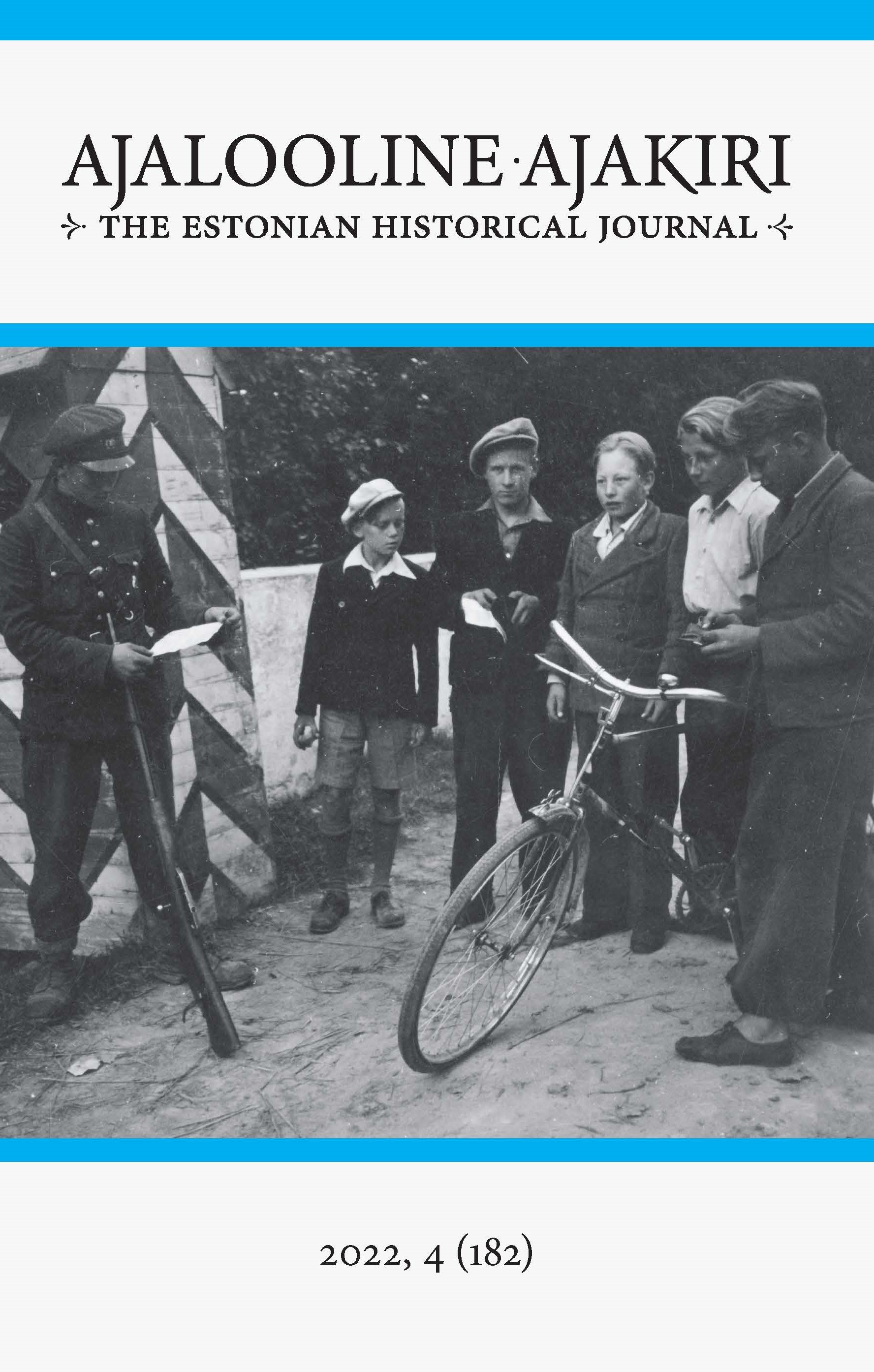Tartu filosoofiaprofessor Mihhail Makarov filosoofiaajaloolises kontekstis / Tartu’s Professor of Philosophy Mikhail Makarov in the context of the History of Philosophy
DOI:
https://doi.org/10.12697/AA.2022.4.01Keywords:
Mikhail Makarov, University of Tartu, history of philosophy, categories of materialist dialecticsAbstract
Mikhail Makarov (1922–2019) was a lecturer of philosophy at Tartu State University in 1951–71. The 1960s, when he headed the Chair of Philosophy, is the particular time period when conditions took shape at the university for development of philosophical culture – to the extent to which the Soviet system’s conditions permitted this. The theme in philosophy that primarily interested him was categories of materialist dialectics. This article examines Mikhail Makarov’s main research interests in the context of the history of philosophy, focusing on the history of Marxist and Soviet philosophy. The first part of the article provides an overview of the development of the Soviet philosophical context and of where the subject matter of the category system was situated within Soviet philosophy. The distinctive features of Mikhail Makarov’s approach in this context are delineated in the article’s second part.
The theme of categories of dialectics has drawn attention throughout the history of Marxist philosophy – at times to a greater degree and at other times to a lesser degree. Since it is an aspect of Marxist philosophy that is inspired by Hegel, it has been in a tense relationship with the positivistic aspect of Marxism. These two poles of Marxist philosophy collided in the construction of Soviet Marxist-Leninist philosophy in the 1920s and 1930s in the discussion between the so-called dialecticians and the mechanicists. Stalin ostracised the dialecticians of the 1920s as ‘idealists who practice menshevism’ (menshevising idealism) and in the Stalin era, the Hegelian component of Marxism together with the doctrine of categories was reduced to a minimum. The emergence of this theme in the 1950s, when Mikhail Makarov started dealing with it, can be viewed as part of the rebirth of philosophy in the era of Khrushchev’s thaw. The working out of various treatments of categories and polemics between them can be considered part of overcoming the consequences of Stalinism in philosophy. Yet in Makarov’s approach to the topic, it is not so much intervention in the philosophical discussions of that time that is valuable, but rather his interdisciplinary approach to categorial thinking. His analysis of categories is not limited to philosophical concepts, but rather strives to incorporate the mutual effect of categorical thinking with other levels of thought by extensively involving the results of special disciplines in making sense of this process. He thereat ascribes a particularly significant role to the linguistic historical and terminological historical treatment of words expressing categories in different disciplines and languages. In Soviet philosophical culture, his approach was distinguished primarily by considering categories of Marxist philosophy as belonging to the classical tradition of philosophy and as furthering its heritage, contrary to the withdrawal of Stalinist era Soviet philosophy into itself, the inertia of which was preserved for a long time after Stalin’s death. As head of the Chair of Philosophy, he also influenced the philosophical culture as a whole of Tartu’s professional philosophers to proceed in the same direction. He set thorough training in the history of philosophy as well as the exploration of contemporary non-Marxist philosophy as the basis for graduate studies, to the extent that the conditions of that time allowed. This trend, which is self-evident from the viewpoint of the present day, was rather exceptional in the context of Soviet philosophical culture. The history of philosophy in its historiographic and technical function was one of the few ways in Soviet philosophical culture in which philosophers could supplement their professional skills. By fulfilling these two functions, research in the history of philosophy exerted noteworthy influence on Soviet philosophical culture – the growing professionalism of some Soviet philosophers had to a great extent become possible thanks to precisely the ever more extensive approbation of the historical legacy of philosophy.

